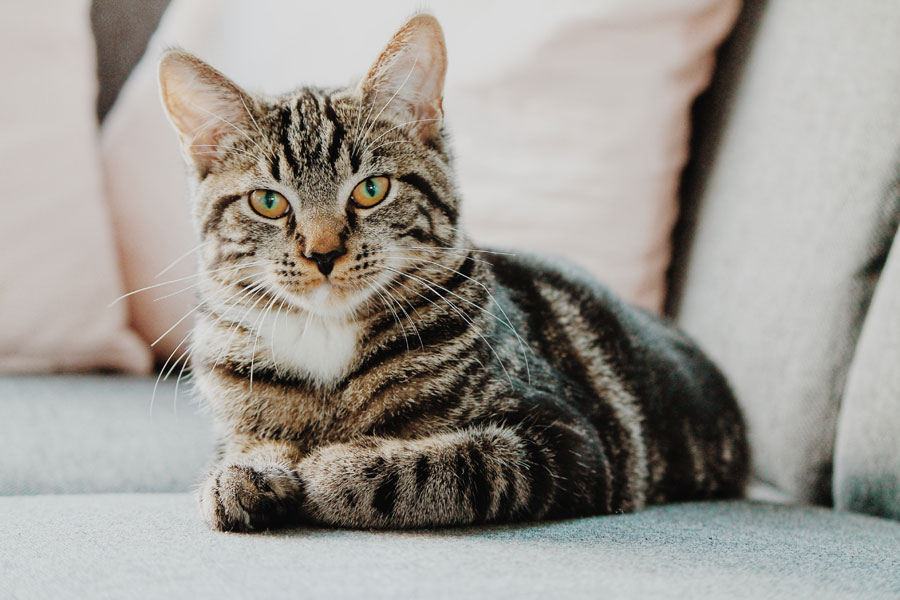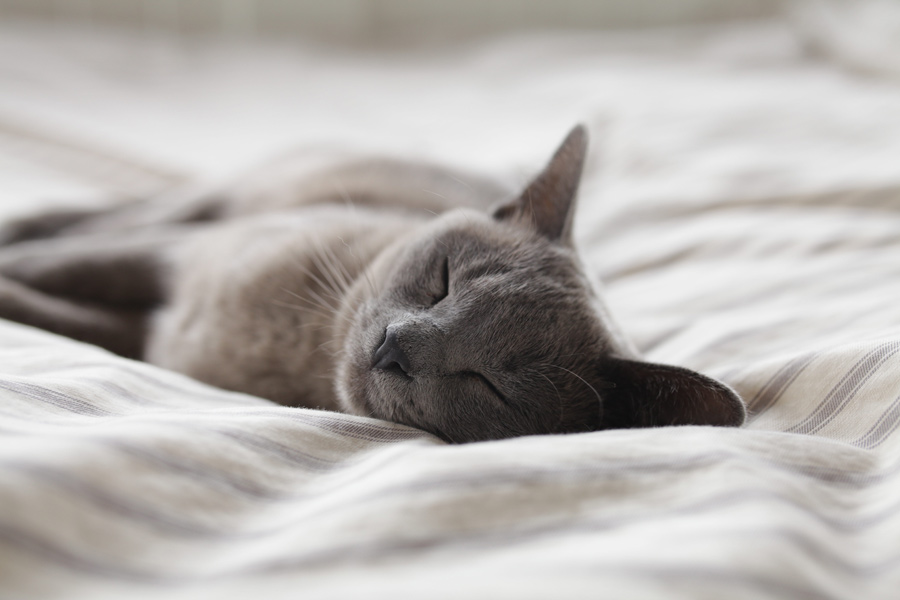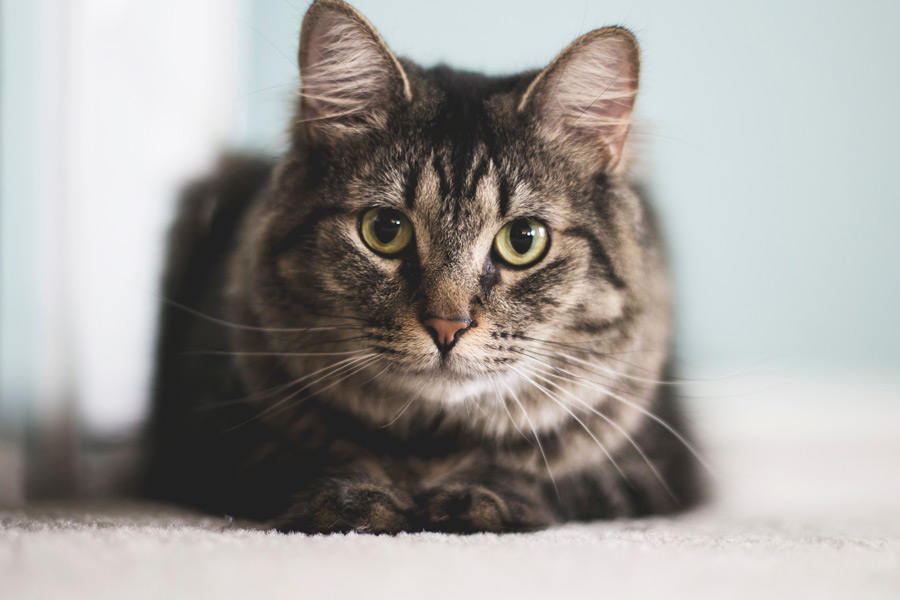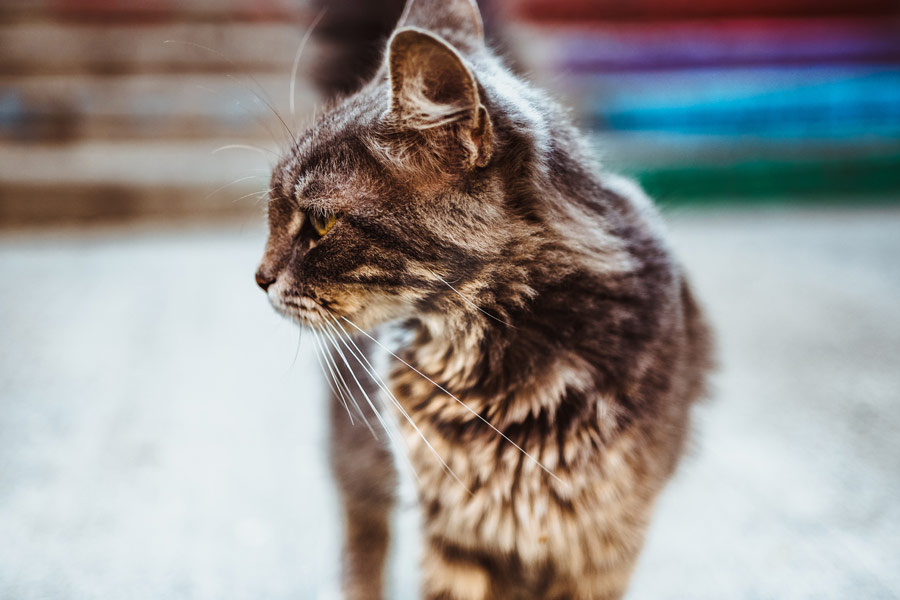Cardiomyopathy is the most common form of heart disease in cats. It is also the term that relates to any disease of the heart or surrounding muscle.
Unfortunately, heart disease in cats is quite common. It’s a serious problem as it prevents the heart from working properly, which can be fatal.
Certainly, it’s important for pet professionals to have an understanding of feline heart disease, the possible causes and potential treatments. With this knowledge you can help educate pet owners and clients and promote the importance of routine veterinary consultations.
While an annual check-up won’t prevent heart disease, early diagnosis helps ensure the best possible outcome.

Image source: Erik-Jan Leusink on Unsplash
Different types of cardiomyopathy
Cardiomyopathies are divided in three or four classifications:
Hypertrophic — According to International Cat Care, this is the most common form of heart disease in felines. It refers to the thickening of the heart muscles. It obstructs the blood flow and leads to poor heart function.
Dilated — This is where the heart muscle is weak and the muscle walls are thin and floppy. As a result, the heart muscle cannot contract effectively.
Restrictive or unclassified — In the third type of cardiomyopathy the heart muscle is unable to fill and pump due to the heart wall becoming stiff and inflexible.

Image source: Alexander Possingham on Unsplash
Causes of heart disease in cats
In many cases, heart disease is hereditary. It can also be related to old age or to other health conditions, such as an overactive thyroid (hyperthyroidism).
According to The Vet Connection, other possible causes of heart disease in cats include:
- Infections
- Exposure to toxins (through drugs and chemical compounds)
- Dietary insufficiencies (such as taurine deficiency)
Know the signs
Unfortunately, as with humans, heart disease can be a silent killer — with no signs or symptoms.
However, early signs may be picked up during routine veterinary examinations. This is why it’s important to advise pet owners to take their pets for a yearly veterinary check-up.
Early warning signs include:
- Abnormal heart sounds (heart murmur)
- Irregular heart rhythm (such as a gallop rhythm)
- Unusual heart rate (abnormally fast or slow in comparison to the normal range)
- Enlarged heart muscle (identified through x-ray)
While recognising heart disease in cats can be difficult, there are a few signs that pet owners, as well as pet professionals, can look out for.
- Unusual tiredness
- Showing signs of weakness or lethargy
- Fainting
- Faint pulse
- Bluish discolouration of foot pads and nail beds
- Difficulty breathing
- Coughing

Image source: Kari Shea on Unsplash
Treating heart disease in cats
If heart disease develops in relation to a taurine deficiency, high blood pressure or overactive thyroid it may be possible to treat the underlying cause. For example, taurine or l-carnitine supplementation may be considered and anti-hypertensive drugs may be prescribed to treat high blood pressure.
It’s common for diuretics to be given to remove excess fluid build-up, as well as providing a low-salt diet.
However, if heart failure develops as a result of the heart disease medication may be prescribed. Drugs for heart failure include beta-blockers, a calcium-channel blocker (Diltiazem) or ACE-inhibitors.
Indeed, despite the fact that heart disease in cats is fairly common, it is difficult to pick up on. Therefore, pet professionals can advise owners on the warning signs. You can also promote cat health by reminding pet parents of the importance of regular vet check-ups, including a heart check.
Related posts:
- 4 common cat injuries & how to treat them
- Arthritis in cats & dogs
- Is it safe for cats & dogs to go vegan?
Information sources:
https://www.vetwest.com.au/pet-library/heart-disease-cardiomyopathy-in-cats
https://icatcare.org/advice/cardiomyopathy-heart-disease-in-cats/
https://www.thevetconnection.com.au/cardiomyopathy-in-cats/
Latest posts by Liz Walden (see all)
- Pet health: Medicinal cannabis for pets - December 27, 2021
- What pet business insurance do I need? - November 17, 2021
- Pet sitters: how to take time off - November 15, 2021










Leave A Comment